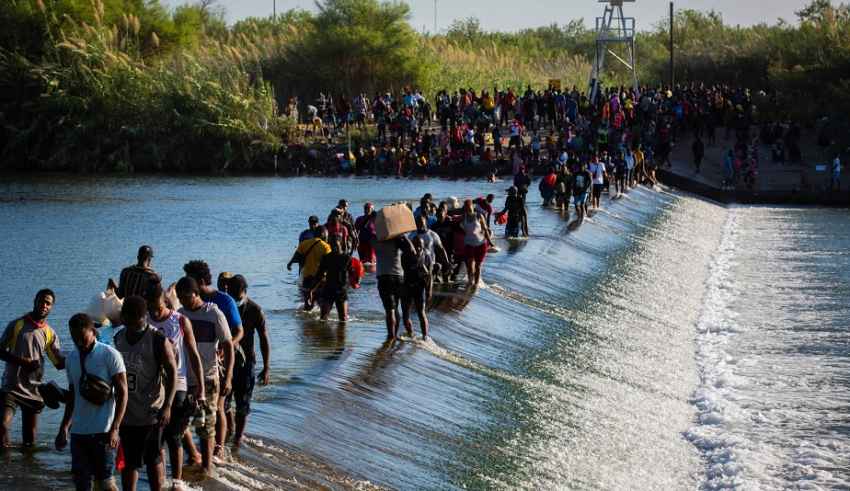
The summer of 2021 has been a tumultuous one for both the Haitian people and their government, precisely on July 7th, a bunch of individuals who were armed broke into the private residency of the soon to be ex Haitian president Jovenel Moïse and managed to kill him mercilessly by shooting him, leaving a country without its lead and shocking the Haitian society, which in the months to come is going to have to deal with everything that will follow the death of its ruler, in addition, information is lacking for what concerns the person, or people, who would have hired the shooters as well as the reasons for the said execution since the president made himself a lot of enemies, by wanting to unilaterally extend his mandate.
What happened has been described multiple times by the media as yet another episode of the kind that usually takes place in Haiti’s turbulent politics, the New York Times for one, described it claiming that the event took place in an “already turbulent political landscape” which then “threatened to descend into further chaos on Thursday as a power struggle between two competing prime ministers stoked tensions after the assassination of President Jovenel Moïse”, a statement that clearly fails to understand the importance of the history of violent foreign interventions that the Haitians had to endure during the years, as a matter of fact, in 1804 Haiti became the first self-governing black society in the Americas but in spite of this, France repeatedly tried to regain control of the territory, and kind of successfully so since it managed to end up with a paid indemnity for the “granted” independence which to this day contributes to the country’s financial instability.
Another neighbor that did not respect Haiti’s independence wishes throughout the years has been the USA, for that matter, in 1915 the at-the-time president Woodrow Wilson sent troops with the order to occupy the country, and that they did for nineteen years during which strict and suffocating rules were imposed on the land, such as racial segregation, restricted press freedom, and widespread violence.
Once the American troops departed from the Haitian land in 1934, the country’s presidency changed hands around twenty times until 1990, when Jean-Bertrand Aristide became the first democratically elected Haitian president, however, he was soon deposed by a coup in which the CIA took part, this can be regarded as a great example of how the US repeatedly intervened in the country’s administration, effectively contributing to its democratic failure.
Eventually, Haiti entered a period of time when the foreign military occupation was no longer American but belonging to the UN which did little to improve the situation Haiti found itself in despite the enormous budget made available to tackle the “Haitian problem”, if possible, they have actually worsened it.
The succession of unstable governments in the previous decades and the correlated growing economic dependence has highly impacted the way Haiti can provide the needed services to its citizens and the 2010 earthquake is proof of that, the tragic event burdened the government in a way that it wasn’t able to respond swiftly to mass destruction which led to multiple development setbacks as well as to a massive international humanitarian operation.
With the murder of Haiti’s prime minister, the run for office began, elections were supposed to be carried out in September and the Haitian people were hoping for no foreign intervention, anyway due to these turbulent happenings record numbers of migrants crossed the border and entered the American country illegally, for this matter Joe Biden requested changes to the US asylum policy to be made which would make it easier for the immigrants to enter the country under a grant named Temporary Protected Status (TPS) issued to Haitian citizens in consequence of the assassination of their president as well as an earthquake and a devastating storm.
Although this was meant to help the Haitian people currently suffering, this grant was exploited by many central American migrants who never set foot in the country in need, which lead to the creation of multiple shelters with poor living conditions due to the number of people crowding them, a situation that the current administration is trying to hide from the public eye as much as possible, in the meantime some of the migrants are being deported back to Haiti illegally, for this reason, Daniel Foote, the US special envoy for Haiti, handed his resignation to the Secretary of State Antony Blinken because he did not want to be associated to the “inhumane counterproductive decision to decision to deport thousands of Haitian refugees from the US-Mexico border”.
This whole situation has exposed the deep problems within Biden’s administration on how to approach immigration starting from the Mexican one and the fact that Mexicans remain the largest group of immigrants in his country and to this day the president hasn’t addressed this problem publicly nor has he explained how the government is going to handle everything that has been happening which reached a tipping point when more than 14000 migrants crossed into Del Rio, Texas, actuating a complete 360 turn from the previous administration.
Moreover, the mass migration, combined with gang-related violence, hunger, and the fact that the Haitian population is almost entirely unvaccinated against COVID-19 are contributing to bringing down an already compromised humanitarian situation.
Is the “Haitian Problem” ever going to be addressed properly?
By The European Institute for International Law and International Relations.












